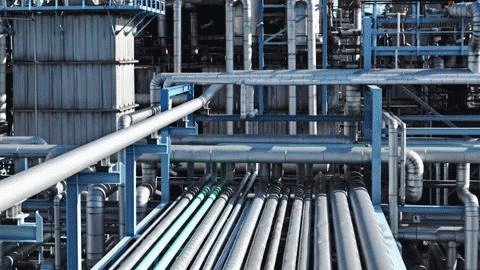Brenntag continues to put on the turbo. 🚀
Lanxess tops, while BASF flops.
It is now very clear that only certain managers have internalized the corporate philosophy that enables them to lead companies through even the toughest crises.
Just under a month ago, I wrote an introduction to $BNR (-1.37%). Since then, there has not only been a veritable share price rally, but also great operational momentum.
Yesterday, December 7, the Brenntag subsidiary "Brenntag Specialties" signed an exclusive distribution agreement with Halox, the $ICL - subsidiary, for the Brazilian market.
This provides further impetus for the future. Not only does the company sense that Brazil is currently the strongest investment market and the associated economic peaks, but it also sees opportunities in the lucrative market for paints and coatings, which are extremely high-margin and cyclically robust in the chemical goods sector.
There was also great news for Lanxess $LXS (+2.19%) there was also great news:
- On the one hand, CEO Matthias Zachert bought ~€200,000 worth of shares, sending massive momentum to the broader market.
- Secondly, as I expected, the investor presentation showed that Lanxess is not dependent on outside capital, which investors had expected. The inflows from the operating business are driven by the efficiency increase in the course of the savings program and the short-term liabilities until 2025 can be covered with own funds.
BASF $BAS (+1.32%) remains one of the worst performers in the important German nuclear industry and will not see any improvement.
Although a comprehensive restructuring of the Group was also announced yesterday, this will also have no effect.
Among other things, the following measures were announced:
- Legal separation of the agriculture, battery business and coatings divisions and the associated margin increases
- Restructuring, in particular of the main plant in Ludwigshafen
- Reduction of the investment budget
So while getquin continues to celebrate a stable dividend, very few people are concerned about the future of the Group. Ultimately, the money that is missing from the investment budget is distributed from within the Group. Without a stable investment strategy and the associated innovations, BASF will lose further market shares, as these are currently only being bought through high discounts anyway, while margins are falling.
Here again, some clever people would argue with the gas price. However, commodity prices are in fact hardly relevant in purchasing. Prices will have normalized again in the course of 2023.
The crucial point for the continued weakness of the industry remains the downstream markets, in particular the construction and real estate sector, which has almost come to a standstill as a result of the price jumps in 2022 and most companies in these sectors are currently struggling to survive.
Another important point for holders of the share is likely to be the succession of the CEO. Unfortunately, relevant investors currently have little confidence in the share. The shares are predominantly held by private investors. Perhaps this should give people pause for thought, if only the social media feed can smell the incredible turnaround.



